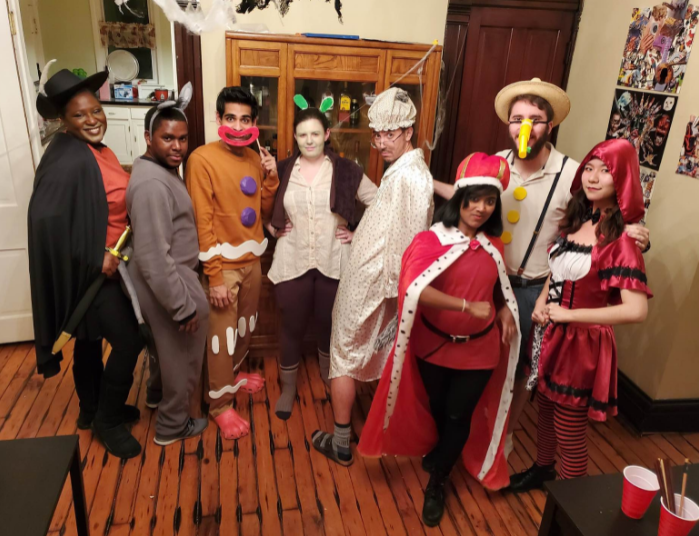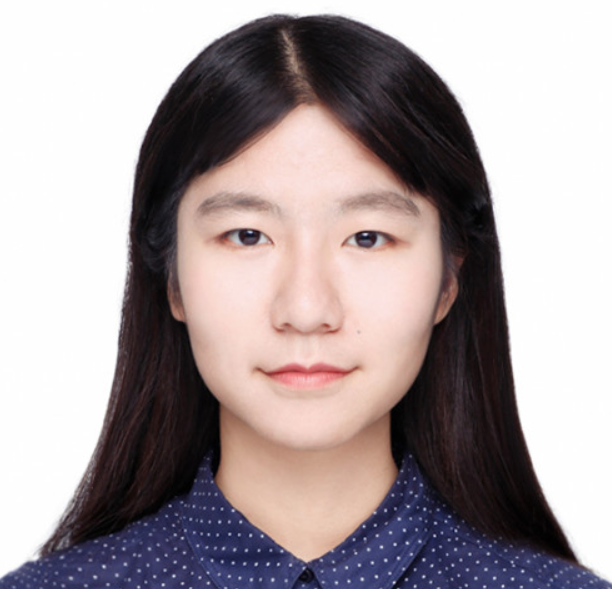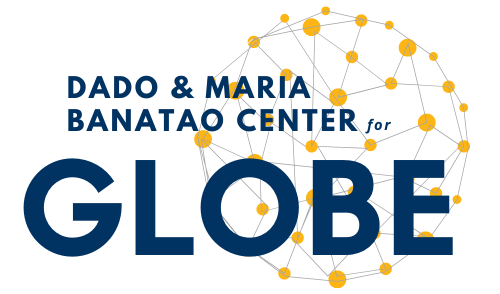What do you advise international students during this trying time?
I think that the most challenging issue I faced was language and communication problems. I was really shy to speak English in front of other people because I did not want to make a mistake. But I was inspired by my language mentor that everyone makes mistakes and we shouldn’t be afraid. Others will not judge you from your language, grammar, and pronunciation. So I recommend students who have the same challenges to keep trying and make connections with others. This will lead to a huge progress. It is okay to be shy, but just be brave to take baby steps outside of your comfort zone.
How was your experience with undergraduate research in UC Berkeley?
Dr. Sherburne is really nice. He gave me a really new project where no one in the lab was working on it. At the beginning, he recommended a great textbook and papers and provided me with the basic knowledge for the project. It is pretty cool to build up your own stuff from scratch. The research project resulted in a publication in the Journal of the American Chemical Society (JACS) (DOI: 10.1021/jacs.9b06824) . I think Dr. Sherburne is really kind with all the students in his class and he would extensively help them with the class projects.
Did Berkeley faculty offer help through your graduate application process? If so, how?
I talked to a professor before my applications about more details such as how do I structure my SOPs, and who is better for my recommendation letters. I also attended a graduation information meeting held by faculty members and graduate students in Berkeley about how to apply to graduate school. They provided me with information about things you need to highlight in your SOP and personal statement ,how important your grades are, and how important your TOEFL scores are. They are really really helpful.
How was your experience with GLOBE?
I arrived later at Berkeley than other students, so it was a pity that I missed some of the orientation sessions. However, I know GLOBE offers a lot of help on how students can get along with their lives and helps students to overcome their challenges when they are in a new country and culture. There was also a package for students to celebrate the New Year that I thought was really heart-felt.
Should you talk with the professors about funding during Ph.D. application? If so, how?
Personally I did not talk about funding, which is a bit tricky for international students. If you have your own funding for PhD schools, I recommend you send emails to inform the schools so they would reconsider your application. In other words, if you get a scholarship or fellowships, just directly talk to the grad school committee or PIs so you have a higher chance of getting admitted.
What is your life like as a Ph.D. student? How many hours per week does the average student in the lab work?
I think PhD life is very interesting and very challenging. I particularly struggled in my last semester as it was a transition period for me. I passed my qualification tests and transitioned from a fresh new student to a PhD candidate. To overcome the stressful stage, I spoke with my colleagues and my friends and realized that everyone has experienced it at some point. (That is how challenging the PhD career is!) Some students can handle it really well as they can have a positive perspective to the problems. But sometimes,people like myself, keep struggling for a long time, which is also all right . Everyone has their own pace and learning curve and a little stress is not a bad thing – depending on how you handle it. However, a lot of stress will result in mental health issues. For PhD it challenges how you communicate with people, how you manage your time, and how you plan your career. It is a really comprehensive process and not a single test.
If you are considering pursuing a PhD degree, but are hesitant, then just apply. PhD is a very unique stage where one can really focus on something and dive deep into a subject which others have little understanding of.
I used to have a time tracker to track my routine. On average, I work 8-9 hours/day on lab work during the weekdays, and 4-5 hours/day on weekends. Sometimes, there are 10-12 hours work days, but sometimes there are relaxing times. Last week, I was trying to get all the required data for my manuscript, which was a hard time for me. This week though, I already have all the results, so I could just sit down and read papers. You will not always be stressed and there will be a balance.

How often do you meet with your Ph.D. advisor? Is your Ph.D. advisor typically available when you need help? If they are not around, how do you get support? What kinds?
I work in the Dr. Cohen-Karini lab at CMU. I meet with my advisor almost everyday, and I also contact my advisor via Slack or email. He is really helpful. I was really interested in his research which is why I chose his lab. Now our lab is in the build-up process so it is necessary to wrap up several key projects. That is why he likes to give updates very frequently. He is super responsive to our challenges and always there to help. He is also really proud of his students and his research, that is why I think the work here is really enjoyable. If he is not around, other lab members or other groups at CMU can potentially offer help. They are really open to any questions.
For example, when I was in my first year, I had some troubles with the machinery. The senior students were not angry that I messed up the equipment and helped me learn how to fix the equipment. This way, I could troubleshoot by myself. The senior students are really a valuable resource because they are always in the lab and they have a better understanding of what you are doing and can give good advice. Each lab has their own focus, and it is really hard to handle all of the challenges, it is very important to communicate with other labs. I was working on sensors but we don’t have experience on how to make them, more specifically how to make the substrates and the connectors. My lab has a very good connection with collaborators at Northwestern. So we had a virtual zoomed tour to their lab and learned how to solve those challenges. When we face an issue in other processes, we could receive help from other labs. We are also happy to help other labs when they need help. There is always taking as well as giving.
Does your advisor support students in their pursuit of career goals? Does he or she help grad students find postdocs, jobs, VC funding, etc.?
Yes, as far as I know, our first PhD student graduated in Jan 2020. The advisor was really helpful to him and shared his application materials with him about how to find a professor position. The result was pretty successful, he got four offers and could choose which offers he wanted.
How to be successful as a Ph.D. student?
Be responsible and be professional. Being responsible means you should be responsible for your project and the role you took in your team and communicating your research to others. Being professional means you should know the details of what you are working on. It is good to separate your emotions and your work.
Any last pieces of advice you would like to give students who are wanting to go to get their PhDs?
I would like to say PhD is a really challenging step to take. It is not only an academic research aspect, it is a really comprehensive challenge. I think you are the only person who is responsible for yourself and your research. You need to make the realization and decision by yourself. Listen to your heart and follow what you really want to do, despite what other people say or expect from you.

Yingqiao Wang
Yingqiao is a Materials Science and Engineering Ph.D. student at Carnegie Mellon University. She is currently working on biosensors and material-neuronal interfaces.
Connect with Yingqiao via LinkedIn
GLOBE Alumni Spotlight Series
- Exploring Energy Sustainability: Nadhilah’s Research Journey from Indonesia to UC Berkeley
- Alex Nguyen’s Summer 2023 Machine Learning Internship at a Swedish Startup
- Sarah Mehtabuddin’s SERIUS Internship at National University of Singapore
- Navigating Japan’s Nuclear Landscape with Eric He
- GLOBE Ambassadors Recount their Summer 2022 Trip
